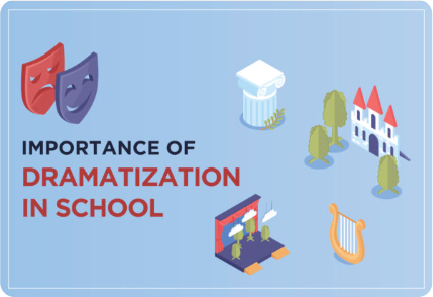FUN A DAY: An Important Aspect of Child Development
September 29, 2022
Play is an essential part of every child’s life and is vital for enjoyment. Having the time and space to play and have fun allows kids to be physically active and it gives them the freedom to make their own choices about what they want to do. Children learn as they have fun. It also helps the child to improve their self-esteem, self-awareness, and self-respect. Through games the child gets a chance to develop new skills. Kanakia International School is at the forefront of providing the best school experience for the kids.
There are various ways through which we can introduce fun activities in a child’s daily routine.
Fun A Day with Toy – Each new day, a child needs someone to love, to play, to understand and to have fun with them. Toys are their best friends, no matter the age. Toys have the potential to teach in many ways as well as play a positive role in child’s educational, social, emotional and physical development. Play is the mechanism by which children learn how they experience their world, practice new skills, new ideas.
Fun A Day with Art & Craft – Art and Craft practice develops the right side of all human brains which deals with creativity, emotional intelligence, imagination and other social skills. Education in Art and Craft at school is considered a vital and valuable element for the wholesome and harmonious brain development of the children. As an International School in Chembur we focus on providing as much unique experiences to our kids as possible.
Fun A Day with Motor Activities – Play dough is often used as part of the heavy work component of a sensory diet. They can also help improve a child’s fine motor skills. Encourage children to squeeze, stretch, pinch and roll (snakes) or (worms) with the play clay. Children can even try to cut the play dough with scissors. Similarly, gross motor skills are larger movement activities such as sitting, rolling, kneeling, crawling, walking, running, jumping, skipping, etc. Many times, when children are provided with independent free play outdoors, they automatically participate in these types of fun play skills.
Fun A Day with Adventures – When the weather is pleasant, it is fun to be outdoors and have some adventures. Planning outdoor adventures for kids doesn’t have to be hard. There are plenty of simple ways to create a little magic in your outdoor adventures. There are also some incredible ideas here that will take a little more effort, but will definitely make some amazing memories. Kanakia International School learners are always ready to explore the fun activities. Adventures like hiking, animal hunt, planting, build a catapult, bird feeder, water blob, animal yoga, etc. are something where kids enjoy a lot while doing these activities full of adventures.
`Even Though You’re Growing Up, You Should Never Stop Having Fun’

